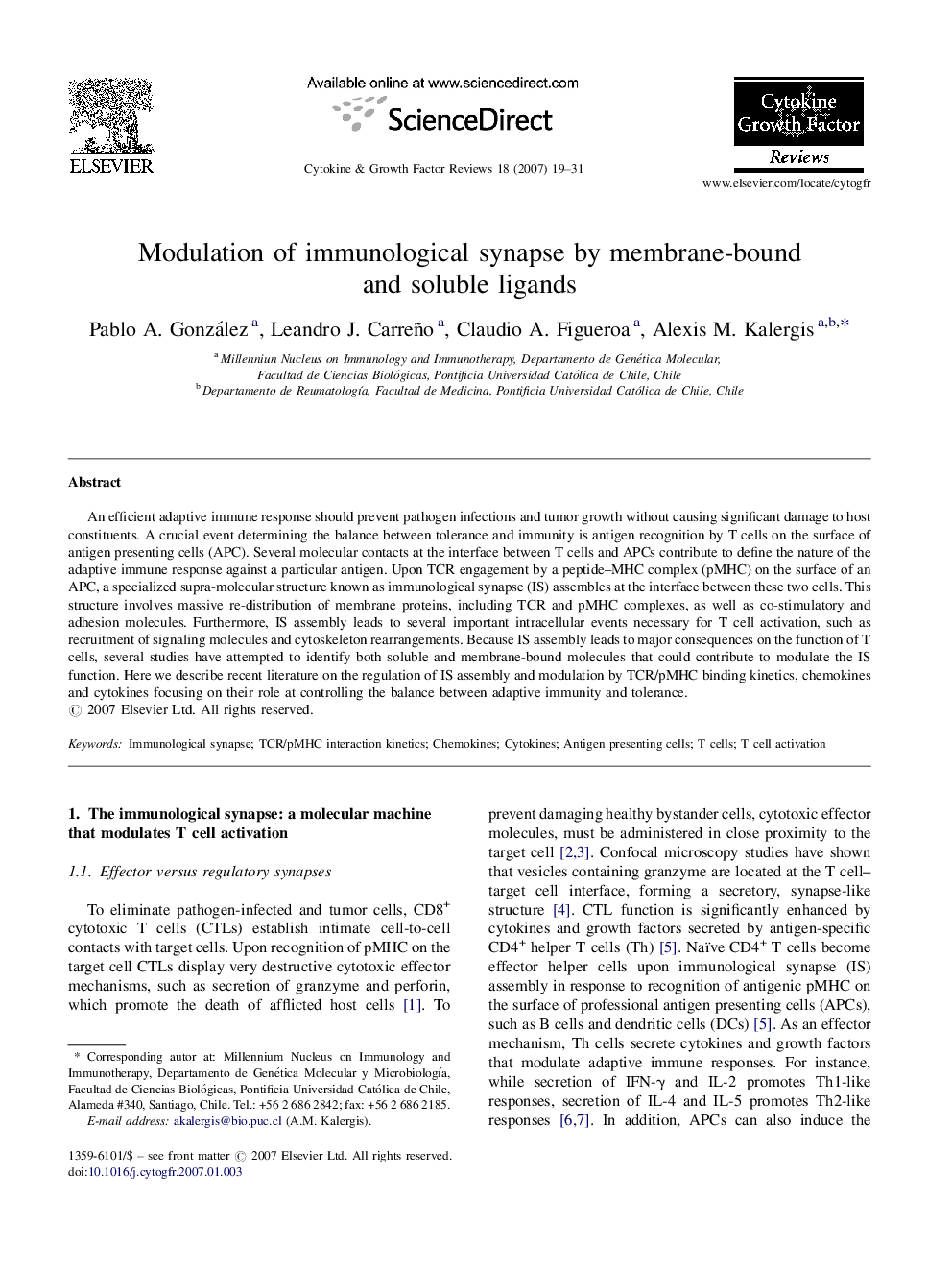| Article ID | Journal | Published Year | Pages | File Type |
|---|---|---|---|---|
| 2170837 | Cytokine & Growth Factor Reviews | 2007 | 13 Pages |
An efficient adaptive immune response should prevent pathogen infections and tumor growth without causing significant damage to host constituents. A crucial event determining the balance between tolerance and immunity is antigen recognition by T cells on the surface of antigen presenting cells (APC). Several molecular contacts at the interface between T cells and APCs contribute to define the nature of the adaptive immune response against a particular antigen. Upon TCR engagement by a peptide–MHC complex (pMHC) on the surface of an APC, a specialized supra-molecular structure known as immunological synapse (IS) assembles at the interface between these two cells. This structure involves massive re-distribution of membrane proteins, including TCR and pMHC complexes, as well as co-stimulatory and adhesion molecules. Furthermore, IS assembly leads to several important intracellular events necessary for T cell activation, such as recruitment of signaling molecules and cytoskeleton rearrangements. Because IS assembly leads to major consequences on the function of T cells, several studies have attempted to identify both soluble and membrane-bound molecules that could contribute to modulate the IS function. Here we describe recent literature on the regulation of IS assembly and modulation by TCR/pMHC binding kinetics, chemokines and cytokines focusing on their role at controlling the balance between adaptive immunity and tolerance.
